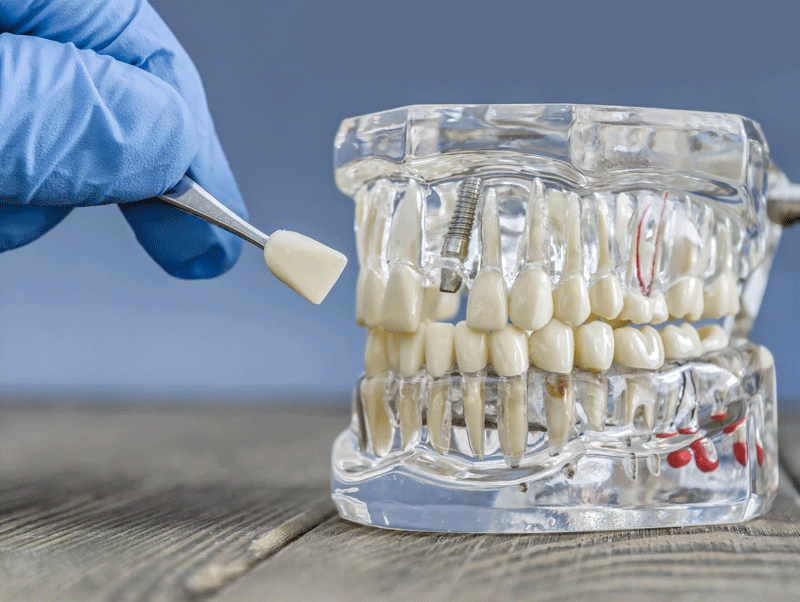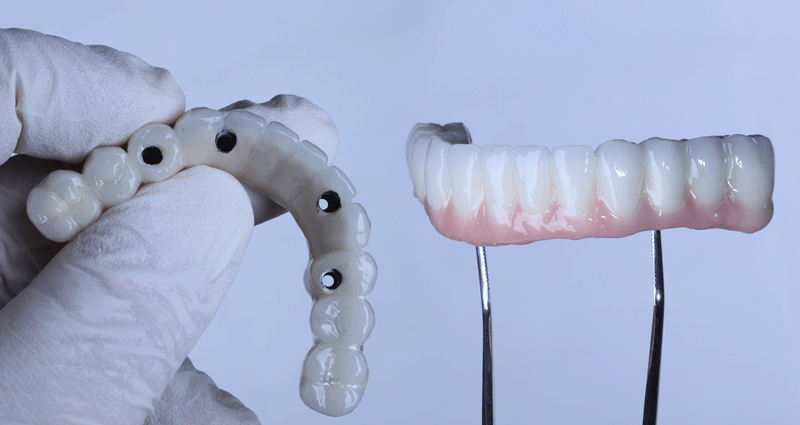Grinding your teeth is a problem that most people have. Chances are if you have a set of chompers, you’ve ground them through some involuntary action at some point in your life.
So what is grinding of the teeth? Grinding your teeth is when your jaw muscles—some of the strongest muscles in the human body—compress, forcing the surfaces of your top and bottom teeth to press together. Done by itself once or twice is not damaging to the tooth structure. However, doing a lot of grinding over time can cause significant damage to your tooth enamel, crown, etc.
What Causes Tooth Grinding?
Tooth grinding tends to be most often caused by nervousness and anxiety. When we feel anxious, we often clench our jaws in an absent-minded physical way to temporarily cope with the stressful situation we are experiencing.
Another significant contributor to tooth grinding is sleep issues. Sleep apnea can cause the jaw to clamp as your body struggles to breathe during the night. Interestingly enough, intense dreams can also cause your teeth to grind.
Alcohol, caffeine, drugs, and smoking can also cause teeth to grind. These substances tend to affect emotion, motor function, etc. Grinding teeth fall under these behavior categories, meaning they will increase when the human brain is exposed to these substances.
Problems of Teeth Grinding
The most common problem caused by teeth grinding is an overall weakening of the tooth enamel and structure. Tooth grinding weakens these structures, making it easier for bacteria to create cavities. Weak teeth also make you more likely to crack and chip pearly whites—even from the most mundane everyday accidents!
TMJ disorder can also be caused by constant teeth grinding. As we said before, the muscles that work the jaw are some of the most powerful in the entire body, and when they work overtime, it can cause them to develop strains. This constant strain leads to pain in the joins connecting the jaw to the skull, which can be so severe that you’ll need your dentist to intervene with treatments.
Other byproducts of teeth grinding are earaches, headaches, migraines, and shooting pains in the rear molars.
Treatments for Tooth Grinding
Treatment depends on the severity and frequency of the teeth grinding. If your case is simple, basic interventions done by your dentist can help train your mouth not to want to clinch so regularly.
More complex teeth grinding treatments include custom mouthguards and sleep masks for those struggling with sleep apnea. Some of the most severe cases may require oral surgery. We always recommend talking to your doctor before seeking specific treatments! Do not try to treat teeth grinding by yourself.
Give Us a Call!
Teeth grinding comes in all shapes, sizes, frequencies, and severities! You could be causing your smile severe harm and not even know it! With our state-of-the-art technology, equipment and facilities, we can take a closer look at just how much damage is being done to your smile. Note that most damage caused by tooth grinding is not visible to the naked eye and is usually manifested in feelings of pain.
The team at McKenzie Family Dentistry can teach you different tips and tricks on how to reverse tooth grinding habits. If your case is more extreme, we can also help with customized treatments designed to combat bi-products of tooth grinding—or grinding itself.
Give us a call to schedule an appointment today, or visit our website to book your visit online now! Remember, tooth grinding is a tough habit to break yourself, so talk to us today before the practice becomes a severe problem for your smile!





